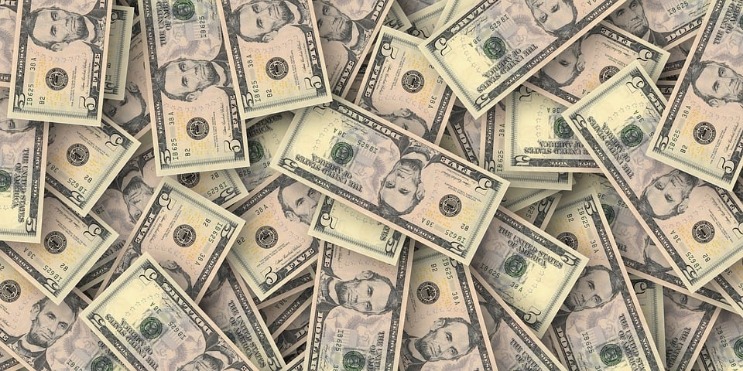Historical Overview of Nigerian Currency
The history of Nigerian currency is a reflection of the country’s rich cultural heritage and economic evolution. From early barter systems to the adoption of various colonial currencies, Nigeria’s monetary history has been shaped by its interactions with colonial powers and its journey towards independence. Today, the Nigerian Naira stands as a symbol of national identity and economic progress, embodying centuries of financial development and adaptation.
Pre-Independence Currency Systems
The history of Nigerian currency before independence is marked by a diverse range of systems influenced by colonial powers and local trading practices. Prior to British colonization, indigenous communities used various forms of barter and traditional currencies for trade and commerce. During the colonial period, the introduction of formal currency systems was driven by European colonial authorities, primarily the British. In the early 20th century, the West African Currency Board (WACB) was established to issue and manage currency across British West Africa, including Nigeria. The WACB introduced the West African pound in 1912, which was pegged to the British pound sterling. This currency system remained in use until Nigeria gained independence in 1960, providing a standardized monetary framework that facilitated trade and economic activities across the region. The pre-independence currency system laid the foundation for Nigeria’s modern monetary sector, reflecting a blend of colonial influence and traditional economic practices.
Introduction of the Nigerian Pound
The history of Nigerian currency is a reflection of the country’s rich cultural and economic development over the years. Before the introduction of the Nigerian Pound, the region used various forms of currency provided by colonial powers and local trade systems. The British influence played a significant role in standardizing currency exchange and trade practices within Nigeria.
The Nigerian Pound was officially introduced in 1907 when Nigeria became a British protectorate. This currency was pegged to the British Pound, facilitating trade and economic transactions within the country and with other British territories. The Nigerian Pound was divided into 20 shillings, each consisting of 12 pence, aligning with the British monetary system.
Throughout the colonial period, the Nigerian Pound circulated alongside British coins and banknotes. It served as the primary currency for over four decades, fostering economic stability and integration with international trade. The design and minting of the currency reflected Nigeria’s colonial status and its relationship with Britain.
In 1958, Nigeria began transitioning towards independence and subsequently introduced new banknotes featuring local themes and symbols to foster national identity. The Nigerian Pound remained in use until 1973, when it was replaced by the Naira, marking a new era of economic independence for Nigeria.
Transition to the Naira
The history of Nigerian currency is a reflection of the country’s colonial past and its journey towards economic independence. Before independence, Nigeria used a variety of currencies including the British Pound, which was the official currency during the colonial era. Post-independence, Nigeria continued to use the Pound sterling until 1958, when the Central Bank of Nigeria issued its own currency, the Nigerian Pound, to foster economic growth and national identity. The Nigerian Pound was subdivided into shillings and pence, aligning with the British system.
The transition to the Naira marked a significant milestone in Nigeria’s monetary history. Introduced in 1973, the Naira replaced the Nigerian Pound at a rate of two Naira to one Pound, reflecting efforts to establish a separate national monetary identity. The Naira was initially pegged to the British Pound but later adopted a floating exchange rate system. Over the years, the Naira has undergone various redenominations and reforms to stabilize the economy and combat inflation. Today, it remains the official currency of Nigeria, symbolizing the country’s sovereignty and economic aspirations.
Current Nigerian Currency Structure
The currency structure of Nigeria is primarily centered around the Nigerian Naira, which serves as the official monetary unit of the country. Managed by the Central Bank of Nigeria, the Naira is subdivided into 100 kobo. The currency features various denominations in both coin and banknote forms, reflecting Nigeria’s economic diversity. Over the years, the Naira has undergone various changes in design and value to adapt to inflation and economic shifts, playing a crucial role in Nigeria’s financial and trade activities.
The Naira (NGN)
The Nigerian currency, known as the Naira (NGN), is the official monetary unit of Nigeria. It is issued and regulated by the Central Bank of Nigeria. The Naira is subdivided into 100 kobo, which are smaller units used for everyday transactions. Nigeria’s currency features a variety of banknotes and coins, with denominations ranging from 50 kobo coins to 1000 Naira notes. Over the years, the Naira has undergone several redesigns to enhance security features and prevent counterfeiting. The currency plays a vital role in Nigeria’s economy, facilitating trade, savings, and investment across the country.
Banknotes and Coins
The currency of Nigeria, known as the Nigerian Naira, is the official legal tender used across the country. It is issued and regulated by the Central Bank of Nigeria. The Nigerian Naira is divided into smaller units called Kobo, with one Naira equaling 100 Kobo. The currency structure includes a variety of banknotes and coins that facilitate everyday transactions.
Banknotes in Nigeria are issued in denominations of 5, 10, 20, 50, 100, 200, 500, and 1,000 Naira. These banknotes feature prominent Nigerian figures, cultural symbols, and important national landmarks, reflecting Nigeria’s rich heritage and history. The banknotes are made with high-quality polymer or paper, designed to be durable and secure against counterfeiting.
Coins are used for smaller denominations and are available in coins of 1, 2, and 5 Naira, as well as 50 Kobo. The coins typically feature Nigerian national symbols, flora, fauna, and other culturally significant motifs. While coins are less frequently used in daily transactions compared to banknotes, they remain an integral part of Nigeria’s currency system.
Issuance and Regulation by the Central Bank of Nigeria
The Nigerian currency, known as the Naira (₦), serves as the official medium of exchange in Nigeria. The Central Bank of Nigeria (CBN) is responsible for the issuance, regulation, and management of the country’s currency, ensuring monetary stability and safeguarding against inflation. The Naira is subdivided into 100 kobo, which are used in everyday transactions. The CBN issues various denominations of banknotes and coins, including notes of 5, 10, 20, 50, 100, 200, 500, and 1000 Naira, with coins primarily in lower denominations such as 50 kobo, 1, 2, and 5 Naira. The bank regularly introduces new designs and security features to prevent counterfeiting and maintain public confidence. Additionally, the CBN oversees monetary policy to control inflation, manage exchange rates, and ensure the stability of the financial system in Nigeria, adapting regulations to meet economic challenges and support sustainable growth.
Design and Features of Nigerian Currency
The Nigerian currency, known as the Naira, showcases a blend of rich cultural heritage and modern design elements. Its design features vibrant colors, intricate patterns, and symbols that represent Nigeria’s diverse history and traditions. The currency is crafted with advanced security features to prevent counterfeiting, including watermarks, security threads, and microprinting. These design elements not only enhance its aesthetic appeal but also ensure the integrity and authenticity of Nigerian banknotes and coins.
Security Features
The Nigerian currency, the Naira, is designed with various features that reflect the nation’s cultural heritage and ensure security against counterfeiting. The notes incorporate vibrant colors, intricate patterns, and images of notable national icons and landmarks.
Security features in Nigerian currency include holographic strips, transparent windows, color-shifting inks, and watermarks. These elements help verify the authenticity of the notes and prevent forgery. Additionally, micro-printing and unique serial numbers are used to enhance security measures.
Visual Elements and Symbols
The Design and Features of Nigerian Currency are a reflection of the country’s rich cultural heritage and national identity. Nigerian banknotes and coins incorporate various visual elements that symbolize its heritage, history, and values. Notable features include vibrant colors, intricate patterns, and security elements to prevent counterfeiting. The banknotes often depict prominent national figures, historical symbols, and important landmarks, showcasing Nigeria’s diverse cultural landscape. Coins feature traditional motifs and national emblems, emphasizing unity and pride. Overall, the currency’s design aims to represent Nigeria’s identity while ensuring its security and durability for circulation.
Monetary Policy and Economic Role
Monetary policy plays a vital role in shaping a country’s economic stability and growth. It involves the management of money supply and interest rates by a nation’s central bank to influence inflation, employment, and overall economic performance. In the context of Nigeria, effective monetary policy is essential for maintaining currency stability, controlling inflation, and fostering sustainable development in a dynamic economic environment.
Inflation Control and Currency Stability
Monetary policy plays a critical role in shaping Nigeria’s economic landscape by regulating the money supply, interest rates, and credit availability to foster economic stability and growth. In Nigeria, the Central Bank of Nigeria (CBN) implements monetary policy measures aimed at controlling inflation and maintaining currency stability to sustain investor confidence and support sustainable development.
- Inflation Control: The CBN uses tools such as interest rate adjustments, open market operations, and reserve requirements to keep inflation within a target range. Controlling inflation helps preserve purchasing power, reduce cost of living, and promote economic stability.
- Currency Stability: Maintaining a stable naira involves managing exchange rates and intervening in forex markets as needed. Currency stability encourages foreign investment, supports exports, and prevents excessive devaluation that can lead to inflationary pressures.
- Economic Role: A well-functioning monetary policy fosters economic growth by ensuring reliable access to credit, stabilizing prices, and boosting confidence among consumers and investors. In Nigeria, balancing these objectives is vital for sustainable development amidst fluctuating global commodity prices and domestic economic challenges.
Impact on Nigeria’s Economy
Monetary policy plays a crucial role in shaping Nigeria’s economy by regulating the supply of money and interest rates to ensure price stability, control inflation, and promote economic growth. The Central Bank of Nigeria (CBN) manages these policies to influence liquidity, employment, and overall economic stability, which directly impacts the country’s currency value and investment climate.
In Nigeria, effective monetary policy can help stabilize the naira, attract foreign investment, and reduce inflationary pressures. However, inconsistent or poorly implemented policies may lead to currency depreciation, inflation spikes, and economic uncertainty, affecting both consumers and businesses.
- Control inflation and stabilize the value of the naira
- Influence exchange rates and foreign reserves
- Encourage or restrict credit to stimulate economic activity
- Support government fiscal policies and economic development
- Prevent excessive currency depreciation and inflationary spirals
Overall, monetary policy is vital in shaping Nigeria’s economic prospects, affecting everything from everyday prices to long-term economic growth and stability within the country.
Exchange Rates and International Trade
Exchange rates play a crucial role in international trade, influencing the cost of goods and services between countries. For Nigeria, understanding its currency and how exchange rates fluctuate is vital for businesses, investors, and policymakers. These rates determine Nigeria’s trading competitiveness and affect the nation’s economic stability in the global market.
Foreign Exchange Market Dynamics
Currency Nigeria plays a pivotal role in facilitating international trade and influencing exchange rates within the global market. The Nigerian Naira’s value fluctuates based on various factors, including economic performance, political stability, and external market conditions, which directly impact Nigeria’s import and export activities. The Foreign Exchange Market Dynamics in Nigeria are characterized by a mix of official exchange rates set by the Central Bank of Nigeria and market-determined rates, creating a complex environment for traders and businesses. These dynamics are further affected by oil prices, foreign investment inflows, and government policies aimed at stabilizing or altering the Naira’s value. A stable and competitive exchange rate is essential for Nigeria to enhance its trade relationships, attract foreign investment, and ensure economic growth, making the understanding of currency fluctuations crucial for policymakers and market participants alike.
International Reserves and Currency Exchange Policies
Currency Nigeria plays a vital role in shaping the country’s international trade, influencing exchange rates, international reserves, and currency exchange policies. The Nigerian Naira (NGN) fluctuates based on various economic factors, impacting the country’s exports and imports. Stable exchange rates encourage foreign investment and facilitate smoother international transactions, while volatile rates can pose risks to traders and investors.
International reserves, comprising foreign currencies, gold, and SDRs, are crucial for Nigeria to stabilize its currency and meet its external financial obligations. Adequate reserves help maintain confidence in the Naira and support monetary policy actions aimed at controlling inflation and stabilizing the economy.
Currency exchange policies in Nigeria have evolved over time, ranging from fixed to more flexible exchange rate systems. The Central Bank of Nigeria (CBN) manages these policies to curb inflation, control capital flight, and promote economic growth. Mechanisms such as multiple exchange rates and forex controls have been used to regulate the Naira’s value amid global economic shifts.
Overall, Nigeria’s approach to managing its currency, maintaining reserves, and setting exchange policies is integral to its economic stability and participation in international trade networks. Effective management of these elements helps Nigeria navigate global economic uncertainties and fosters sustainable development.
Challenges Facing the Nigerian Currency
The Nigerian currency has been facing numerous challenges that threaten its stability and value in the global economic landscape. Factors such as inflation, fluctuating oil prices, and inconsistent government policies have contributed to the decline of the Naira. Additionally, foreign exchange shortages and economic uncertainties further undermine confidence in the currency, making it difficult for Nigeria to achieve sustainable economic growth and financial stability.

Counterfeiting and Security Concerns
The Nigerian currency, the Naira, faces several significant challenges that impact its stability and trust among users. One of the primary issues is the widespread counterfeiting of banknotes, which undermines confidence in the currency and poses substantial security risks. Counterfeiters often exploit gaps in the security features of the Naira, leading to the circulation of fake notes that can devalue the currency and disrupt economic transactions. Additionally, security concerns extend beyond counterfeiting to include theft, fraud, and illicit activities that threaten the integrity of the monetary system. These issues necessitate continuous improvements in security features, public awareness campaigns, and robust law enforcement to protect the currency and maintain economic stability in Nigeria.
Inflation and Currency Depreciation
The Nigerian currency, the Naira, faces several significant challenges that impact the country’s economy. One of the primary issues is inflation, which erodes the purchasing power of the currency and leads to rising prices for goods and services. High inflation can discourage savings and investments, further weakening the economic stability of Nigeria. Additionally, currency depreciation poses a serious concern, as the Naira continuously loses value against major currencies. This depreciation is often driven by factors such as declining foreign reserves, a persistent trade deficit, and reliance on oil exports. The depreciation of the Naira increases the cost of imports, contributing to inflation and reducing the competitiveness of Nigerian products in international markets. These challenges are compounded by political instability, inconsistent government policies, and external economic shocks, all of which make managing the currency more difficult. Addressing these issues requires comprehensive economic reforms aimed at stabilizing inflation, diversifying the economy, and strengthening fiscal and monetary policies to support the Naira’s value. Moreover, improving Nigeria’s foreign exchange reserves and reducing dependency on oil exports can help mitigate the adverse effects of currency depreciation and promote sustainable economic growth.
Future of the Nigerian Currency
The future of the Nigerian currency holds significant implications for the nation’s economy and global financial stability. As Nigeria continues to develop and modernize its financial systems, discussions around digital currencies, monetary policies, and economic reforms are becoming increasingly prominent. Understanding the potential trajectories of the Nigerian currency is essential for investors, policymakers, and citizens alike, as they prepare for a transformed financial landscape.
Digital Currency Initiatives
The future of the Nigerian currency is poised for significant transformation with the ongoing digital currency initiatives. As Nigeria explores the adoption of its Central Bank Digital Currency (CBDC), known as the e-Naira, it aims to modernize its financial system and enhance financial inclusion across the country. The digital currency is expected to streamline transactions, reduce costs, and improve security within the economy. By embracing digital currency initiatives, Nigeria is positioning itself as a leading innovator in Africa’s financial landscape, paving the way for increased economic growth and stability. The success of these initiatives will depend on robust infrastructure, regulatory support, and public acceptance, making the future of the Nigerian currency highly promising and dynamic.
Potential Reforms and Policy Directions
The future of the Nigerian currency, the Naira, hinges on a combination of economic reforms, technological advancements, and sound policy measures. As Nigeria continues to grapple with inflation, foreign exchange volatility, and a reliance on oil revenue, comprehensive reforms are essential to stabilize and strengthen the currency. Potential reforms include the diversification of the economy to reduce dependence on oil exports, the strengthening of monetary policies to control inflation, and the adoption of digital currency initiatives to enhance transaction efficiency.
Policy directions should focus on improving monetary policy transparency and independence, encouraging foreign investment, and fostering financial inclusion nationwide. The Central Bank of Nigeria (CBN) could explore implementing a more flexible exchange rate regime to better reflect market realities, while also safeguarding against speculative attacks. Furthermore, investing in technological infrastructure for cashless transactions and digital payments can modernize the financial landscape, making the Naira more resilient and internationally accepted.
In the long run, these measures can contribute to a more stable and credible Nigerian currency, promoting economic growth and stability. Strategic reforms and prudent policy decisions will be pivotal in restoring confidence among Nigerians and international investors in the Naira’s future.





0 Comments